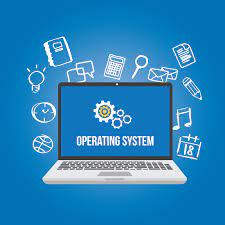Operating Systems
Operating Systems
An operating system (OS) is a software program that manages computer hardware and software resources and provides common services for computer programs. It is the foundation upon which all other software runs and performs its tasks. Operating systems are essential for all devices, from smartphones and tablets to desktop computers, servers, and supercomputers.
The primary function of an operating system is to manage the computer's resources, including the CPU, memory, storage, and input/output (I/O) devices. It also provides services such as file management, security, and network connectivity. The OS acts as an intermediary between the user and the computer hardware, making it easier for the user to interact with the computer.
There are several types of operating systems, including Microsoft Windows, macOS, Linux, and Unix. Windows is the most widely used operating system, with a market share of around 77%. It is primarily used on desktop and laptop computers and provides a user-friendly interface for users. macOS is the operating system used by Apple on its desktop and laptop computers, known for its sleek design and integration with other Apple products.
Linux is an open-source operating system that is popular among developers and system administrators. It is highly customizable and can be used on a range of devices, from smartphones to supercomputers. Unix is an older operating system that is primarily used on servers and mainframes.
One of the key features of operating systems is the ability to multitask. This means that the operating system can run multiple programs at the same time, allowing users to switch between different applications seamlessly. The OS manages the CPU and memory resources and allocates them to different programs as needed.
Another important feature of operating systems is security. The OS provides various security measures such as user authentication, file permissions, and encryption to protect the computer from unauthorized access and malware attacks. Operating systems also provide regular updates to patch security vulnerabilities and improve performance.
In addition to desktop and laptop computers, operating systems are also used in other devices such as smartphones, tablets, and game consoles. Mobile operating systems such as Android and iOS are designed specifically for mobile devices, providing features such as touch screen support and mobile connectivity.
In conclusion, operating systems are an essential component of modern computing. They provide a platform for all other software to run and manage computer resources, provide security measures, and facilitate user interaction with the computer. With the increasing use of mobile devices and the internet of things, the importance of operating systems is only set to grow in the future.



helpful
ReplyDelete